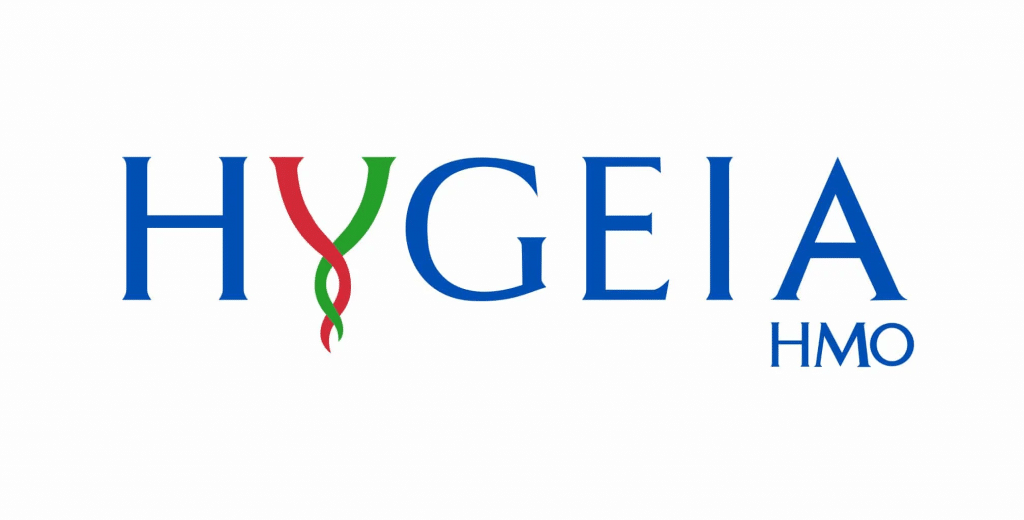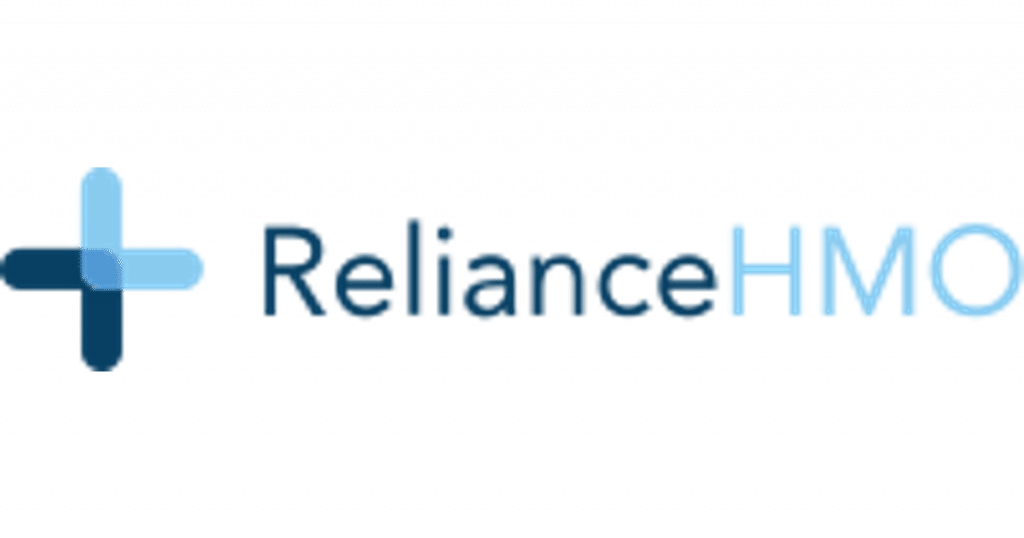Healthcare in Nigeria can be tough, but Health Maintenance Organizations (HMOs) are critical to making quality treatment more accessible and inexpensive. My experience with HMOs showed its importance in controlling healthcare costs and providing timely access to treatments. In this article, we’ll look at the benefits that HMOs bring to Nigeria’s healthcare system as well as the obstacles they face. We’ll also highlight some of the best HMOs known for their extensive coverage. Whether you’re looking for coverage or simply want to learn more about the system, this guide will help.
Understanding HMOs and their Role in Nigeria
Health Maintenance Organizations (HMOs) are private or public institutions that offer health insurance to individuals and groups. In Nigeria, HMOs serve as go-betweens for healthcare providers and patients, providing prepaid health plans that cover a wide range of medical services. HMOs negotiate lower-cost services with healthcare providers by pooling resources from subscribers, making healthcare more accessible to a larger population.
The National Health Insurance Scheme (NHIS) in Nigeria was intended to promote healthcare access, and HMOs play an important role in this system. They handle the funds supplied by employers, employees, and other persons, ensuring that subscribers obtain the care they require without incurring significant out-of-pocket costs.
The Benefits of HMOs in Nigeria
#1. Improved Access to Healthcare
One of the most important advantages of HMOs is their potential to improve access to healthcare services. Many Nigerians struggled to afford quality healthcare before the widespread adoption of HMOs. According to recent research, over 97% of Nigerians continue to fund healthcare through out-of-pocket payments, but HMOs are gradually altering this story by offering reasonable insurance plans that cover key treatments such as consultations, diagnostic tests, and operations.
#2. Cost-effective Healthcare
HMOs provide a cost-effective approach to healthcare finance in Nigeria. Enrollees pay a fixed cost and have access to a network of healthcare providers, easing the financial burden of unexpected medical expenses. Individuals and families can better manage their healthcare costs by spreading payments out over time.
#3. Preventive Health Services
HMOs in Nigeria are increasingly emphasizing preventive healthcare, including services such as regular health check-ups, vaccines, and wellness programs. This trend toward prevention not only aids in the early detection and treatment of illnesses, but it also lessens the overall strain on the healthcare system.
#4. Improved quality of care
HMOs contribute to the improvement of healthcare quality in Nigeria by forming partnerships with providers. They frequently define service delivery standards, ensuring that patients receive consistent, high-quality care. HMOs also have procedures in place to assess patient satisfaction and manage issues, which helps to improve healthcare results.
#5. Support for Employers
Employers can attract and retain talent by offering HMO coverage. It is a benefit that demonstrates that employees’ health and well-being are important. Furthermore, HMOs serve to reduce absenteeism and increase productivity by ensuring that employees have access to essential healthcare services when they need them.
7 Best HMOs in Nigeria for 2024
Here’s a list of some of Nigeria’s greatest HMOs, noted for their comprehensive coverage, service quality, and client satisfaction:
#1. Hygeia HMO

Hygeia HMO is one of Nigeria’s oldest and most recognized HMOs. It provides a diverse choice of health insurance for individuals, families, and businesses. Hygeia is well-known for its vast network of healthcare specialists and emphasis on preventative care services such as frequent health screenings and wellness programs.
- Strengths: Large provider network, strong emphasis on preventive care, established reputation.
- Suitable For: Individuals, families, and businesses seeking complete coverage.
#2. Avon HMO

Avon HMO is well-known in Nigeria for its revolutionary approach to healthcare management. It offers specialized health plans that meet the needs of various population segments, such as small enterprises, families, and individuals. Avon HMO is noted for its fast customer service and user-friendly digital systems, which make managing healthcare needs simple.
- Strengths: Customized health plans, exceptional customer service, and user-friendly digital platforms.
- Ideal for: Small enterprises, families, and individuals who want flexibility and simplicity of access.
#3. AXA Mansard Health Insurance

AXA Mansard is a worldwide famous insurance company, and its HMO services in Nigeria are well-regarded. The firm provides a variety of health plans, including options for expats and high-net-worth individuals. The HMO is well-known for its rapid claims processing, comprehensive coverage, and financial stability.
- Strengths: Strong financial stability, efficient claims processing, and customized programs for a variety of needs.
- Applicable to: Expatriates, high-net-worth individuals, and corporations seeking dependable coverage.
#4. Leadway Health

Leadway Health is a division of the Leadway Assurance Group, one of Nigeria’s biggest insurance businesses. The firm provides health insurance plans that cover a wide range of healthcare services, such as expert consultations, diagnostics, and surgery. The HMO is well-known for its transparent pricing, extensive provider network, and commitment to quality treatment.
- Strengths: Transparent price, broad coverage, and a reliable brand.
- Ideal for: Individuals, families, and business clients seeking transparent and dependable health insurance.
#5. Red Care HMO

Redcare HMO is noted for its personalized approach to healthcare, providing health plans that are individually suited to the needs of its members. Redcare HMO covers a wide range of medical services and has partnered with some of Nigeria’s leading institutions. The HMO is also recognized for putting a major emphasis on preventive treatment.
- Strengths: Personalized health plans, excellent hospital connections, and a focus on preventative care.
- Suitable For: Individuals and families seeking specialized healthcare solutions.
#6. Reliance HMO

Reliance HMO is a technology-driven health insurance provider in Nigeria that provides inexpensive and flexible health plans. The HMO uses technology to provide seamless healthcare services, such as telemedicine, digital consultations, and simple claim processing. Reliance HMO is especially popular with young professionals and small businesses.
- Strengths include technology-driven services, affordability, and telemedicine.
- Ideal for: Young professionals, tech-savvy individuals, and small enterprises looking for economical healthcare.
#7. Total Health Trust (THT)

Total Health Trust is one of Nigeria’s largest HMOs, with a vast network of healthcare providers. THT provides a diverse choice of health insurance for individuals, families, and businesses. The HMO is noted for its excellent customer service, broad coverage, and emphasis on employee wellness programs.
- Strengths: Large provider network, excellent customer service, and a focus on employee wellness.
- Applicable to: Corporate groups, families, and individuals wanting complete healthcare coverage.
These HMOs are among the best in Nigeria, with a wide range of plans to meet diverse needs. Whether you are an individual seeking basic coverage, a family seeking comprehensive treatment, or a business wishing to provide employee health benefits, these HMOs are dependable and well-regarded solutions.
Challenges for HMOs in Nigeria
#1. Limited coverage
Despite their benefits, Nigerian HMOs have considerable obstacles, one of which is limited coverage. According to recent studies, just approximately 5% of Nigeria’s population has health insurance, and HMOs have failed to expand their reach beyond urban regions. This poor coverage is frequently due to a lack of knowledge, economic concerns, and logistical difficulties in rural locations.
#2. Quality of Care Concerns
While HMOs strive to deliver high-quality treatment, there have been instances in which network providers’ services have been questioned. Patients have claimed a variety of concerns, including treatment delays and poor care. This issue is frequently linked to financial arrangements between HMOs and healthcare providers, which may not necessarily result in the best service.
#3. Regulatory Challenges
The regulatory environment for HMOs in Nigeria is still growing, which has posed issues in terms of standardization and enforcement. While the NHIS provides a framework for HMO operations, regulatory gaps allow for inconsistent service delivery and management methods.
#4. Financial sustainability
Maintaining financial sustainability is another difficulty for Nigerian HMOs. The rising healthcare costs and low premium rates have put pressure on HMOs to manage resources efficiently while maintaining quality services. Some HMOs have experienced delayed payments from employers and other donors, limiting their capacity to meet their commitments to healthcare providers.
#5. Trust and Transparency Issues
Building trust between enrollees and healthcare providers remains a big challenge for HMOs. There have been instances of a lack of transparency in the handling of finances and the communication of benefits, resulting in unhappiness among stakeholders. Clear communication and transparency are critical to the growth and success of HMOs in Nigeria.
Template for HMO Plan Selection Guide
I’ve produced an HMO Plan Selection Guide to help people and employers find the best HMO plan for them. This template allows you to compare HMO plans based on their coverage, pricing, provider network, and other perks. It is a critical tool for making informed selections and ensuring you choose a plan that suits your requirements and budget.
HMO Plan Selection Guide Template
Can HMOs improve the quality of healthcare in Nigeria?
Yes, HMOs can improve healthcare quality in Nigeria by establishing service delivery standards, evaluating patient satisfaction, and resolving provider difficulties. However, issues with funding arrangements and provider incentives might have an impact on service consistency.
How can Nigerians choose the best HMO plan?
Choosing the proper HMO plan in Nigeria is an important decision that will have a big impact on your healthcare experience and financial well-being. Here are some important aspects to consider while choosing an HMO plan:
#1. Coverage
The first and most crucial consideration is the coverage offered by the HMO plan. Coverage refers to the kind of medical services and treatments that the plan will pay for. This includes outpatient treatment, hospitalization, surgery, diagnostic tests, maternity care, and preventative services such as vaccines and health screenings.
- What to check for: Make sure the HMO plan covers the precise medical treatments you require or anticipate requiring in the future. For example, if you have a chronic ailment, ensure that the plan includes continuous treatments and specialist appointments. It’s also critical to determine whether the plan covers emergency care and what its limitations are, such as annual coverage limits or exclusions for specific treatments.
#2. Cost
The cost of the HMO plan is another important consideration. This includes both the monthly or annual premiums you pay to keep your coverage and any out-of-pocket expenses, such as copayments or deductibles when you use healthcare services.
- What to look for: Compare premium costs for various HMO plans and see how they fit into your budget. However, instead of focusing solely on the cheapest plan, examine the entire value. A plan with a little higher premium but better coverage may save you money in the long term. Be aware of any additional charges, including fees for specific procedures or increased co-pays for certain types of care.
#3. Provider Network
The provider network includes hospitals, clinics, and healthcare professionals who are linked with the HMO. Enrolling in an HMO plan often requires you to use providers inside the network to enjoy the full advantages of your coverage.
- What to look for: Review the list of hospitals, clinics, and physicians in the HMO’s network. Make certain that the network contains respected healthcare professionals who are easily located near your home or job. Additionally, if you have a favorite doctor or specialist, make sure they are part of the network. A large network provides you with additional alternatives and flexibility when deciding where to receive care.
#4. Additional benefits
Some HMO plans include perks beyond regular medical coverage. These may include wellness programs, discounts on health-related items and services, telemedicine consultations, dental and optical care, and coverage for alternative therapies such as acupuncture.
- What to look for: Determine which additional benefits are vital to you and whether they are included in the HMO plan. For example, if you are interested in preventive health, a plan that provides free yearly health check-ups or fitness program discounts could be quite beneficial. Furthermore, telemedicine alternatives can provide a simple way to obtain healthcare without having to visit a clinic, particularly for minor ailments or follow-up visits.
#5. Customer Service & Support
The level of customer service provided by the HMO is often neglected, yet it can have a huge impact on your experience. Good customer service ensures that your claims are processed swiftly, your inquiries are promptly addressed, and any concerns are resolved as soon as possible.
- What to look for: Read reviews or ask current enrollees for recommendations to learn more about the HMO’s customer service reputation. Look for HMOs that provide 24-hour customer service, an easy-to-use web portal or app, and clear and comprehensive information about your plan and benefits. Also, assess how responsive they are to claims and disputes.
#6. Flexibility and Portability
Flexibility in an HMO plan relates to how readily you can transfer plans, change your coverage, or get care while you are not in your typical area. Portability is especially crucial for persons who travel frequently or may relocate to other parts of Nigeria.
- What to look for: Determine whether the HMO plan allows you to adjust your plan or add coverage as your needs change. Consider whether the plan provides coverage in various parts of the country or allows you to receive care when traveling. Some HMOs also offer the ability to transfer your coverage if you relocate, which can be a useful feature.
#7. Financial Stability of HMO
The financial stability of the HMO is critical since it affects its ability to pay claims and continue providing coverage. An HMO with solid financial health is less likely to experience service delays or unexpected policy changes.
- What to look for: Examine the HMO’s financial status, including its market longevity, support from respectable financial institutions, and general market repute. An HMO with a strong financial base is more likely to provide continuous and dependable service throughout time.
Using the HMO Plan Selection Guide
The HMO Plan Selection Guide template can be a great resource for simplifying the process of selecting the best HMO plan. This guide allows you to compare different HMO plans side by side, taking into account the parameters listed above. Using the guidance, you may make an informed decision based on your unique healthcare requirements, budget, and preferences. Whether you are an individual searching for personal coverage or a company wishing to give healthcare benefits to your employees, this guide will help you choose the plan that offers the best value and satisfies your healthcare needs.
HMO Plan Selection Guide Template
Cost of HMO Plans In Nigeria
The cost of an HMO plan in Nigeria varies greatly based on several criteria, including the kind of plan, the degree of coverage, the HMO provider, and whether the plan is for an individual, a family, or a business group. Here’s the broad breakdown:
#1. Individual HMO plans
Individual plans typically cost between ₦15,000 and ₦75,000 per year, depending on coverage and HMO provider. Basic plans, which cover essential healthcare services, are at the lower end of this spectrum. More comprehensive plans, which offer broader coverage such as specialist consultations, diagnostic testing, and operations, are on the expensive side.
#2. Family HMO Plans
Family HMO plans range from ₦50,000 per year to ₦200,000 or more, depending on family size and coverage level. These plans often cover all family members’ main healthcare needs, maternity care, and, in certain cases, dentistry and optical care.
#3. Corporate HMO Plans
Corporate HMO plans are typically tailored to the needs of organizations and can vary greatly depending on the number of employees and the level of coverage necessary. Companies typically pay between ₦30,000 and ₦150,000 per employee annually. These plans frequently feature extensive coverage, wellness initiatives, and occasionally additional services such as telemedicine.
Premium HMO plans, which include international healthcare services, can cost up to ₦1,000,000 per year. These plans frequently cover a bigger network of hospitals, including those worldwide, and have higher limits on healthcare services.
Factors Affecting the Cost of HMO Plans in Nigeria
- Level of Coverage: The more extensive the coverage (including specialist care, surgeries, and chronic illness management), the higher the cost.
- Provider Network: HMOs with larger and more established hospital networks may charge higher premiums.
- Additional Benefits: Plans with additional benefits, including dental care, vision care, wellness programs, and telemedicine are often more expensive.
- Geographical Coverage: Plans that cover numerous regions in Nigeria, or include worldwide coverage, are typically more expensive.
- Age and Health Status: Individual plans’ premiums can be affected by the enrollee’s age and health status. Older people or those with pre-existing conditions may face higher premiums.
- Payment Frequency: Some HMOs provide discounts for annual payments; however, monthly payments may result in slightly higher overall expenses.
These price ranges provide an idea of what you could anticipate paying for HMO coverage in Nigeria, but real prices may vary depending on the HMO provider and plan details. It is always advisable to evaluate various plans and providers to get the best solution for your healthcare needs and budget.
Key Takeaways
- HMOs provide access to healthcare services, especially for people who might otherwise be unable to afford quality care.
- By providing prepaid health plans, HMOs assist individuals and organizations in better managing healthcare expenditures.
- Many HMOs in Nigeria increasingly prioritize preventive treatment, which helps to minimize the overall burden on the healthcare system.
- Despite their benefits, Nigerian HMOs have substantial problems, such as limited coverage and concerns about care quality.
- Tools such as the HMO Plan Selection Guide can assist individuals and employers in selecting the appropriate HMO plan for their specific requirements.
Conclusion
HMOs play an important part in Nigeria’s healthcare system by delivering affordable healthcare services. They must address several problems, however, which limit their usefulness. For both individuals and organizations, choosing the correct HMO plan is critical to ensuring complete healthcare coverage. As Nigeria’s healthcare landscape evolves, how can HMOs adjust to meet new demands and challenges?
- COMMERCIAL HEALTH INSURANCE: How it Works & Top Largest Commercial Health Insurance Companies
- WHAT IS A POS: How It Works, Insurance & What You Should Know
- Best Health Insurance In Washington State: The Top Providers In 2024
- WHAT IS MEDICARE PART C: Medicare Advantage Plans & Costs
- What is a PPO Plan and How Does It Work?






